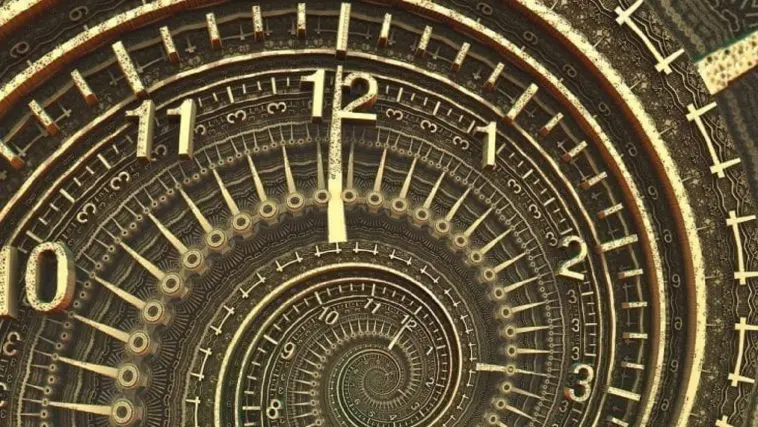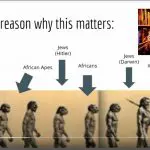As far as the exact time of creation—thus the age of the earth and the universe—the exact number or date we calculate may be slightly different, but the intent of the original document remains:
The reader should be able to add the numbers provided and arrive at the time of creation, within a year per generation.
And this was the intent of the final compiler of Genesis, which was first written by successive eyewitness penmen, that whoever would read Genesis, adding the ages of the patriarchs at the birth of each successor in the messianic line should be able to add up those years and derive the number of years which passed from the “beginning” to the flood, from the flood to Terah, and from Terah to Jacob and his sons entering Egypt.
And Terah lived seventy years, and begat Abram, Nahor, and Haran. Genesis 11:26
The age of Terah when He begat Abram was not 70 years, instead, the Bible is using the same sort of language used at end of chapter five where it appears that Noah was 500 at the birth of “Shem, Ham, and Japheth” (Gen. 5:32). But chapter eleven reveals that Shem was 100 “two years after the Flood,” meaning that he was born when Noah was 502. Abram, at age 75, left Haran when Terah died, and that means then that Abram was born when Terah was 130.
With regard to Stephen’s oration at his stoning, he is simply reciting accepted oral history and clarification known among those Jews in his audience. But Stephen’s words only confirm that the ages given in Genesis are indeed intended as a true chronology, and if not the primary reason for ages at birth of the heir, then what might be the reason? Those numbers are not given in every genealogy, only in the messianic line in Genesis.
And Pharaoh said unto Jacob, How old art]thou? And Jacob said unto Pharaoh, The days of the years of my pilgrimage are an hundred and thirty years: few and evil have the days of the years of my life been, and have not attained unto the days of the years of the life of my fathers in the days of their pilgrimage. Genesis 47:8–9
All of Genesis treats the numbers as mathematical facts—as in the account of Jacob before Pharaoh. The numbers throughout Genesis and elsewhere in the Hebrew Scriptures (e.g. 1 Kings 6:1), when worked out mathematically, provide us with the time of the beginning.
These numbers are there for a reason. The numbers are better than an estimate, rather they provide an actual count to be added up and accepted!
What they add up to is this: The beginning of creation was very close to 6000 years ago.
As Dr. Joel Minto, an apologist for the erroneous view of OEC pointed out:
It is not a book about astrophysics. The purpose of the biblical record is to guide us to a communal and personal relationship with the Creator, not to tell us how God created. Contemporary debates about creation tend to ignore this, and as a consequence, attempt to force-fit the biblical text into an empirical scientific worldview.
This is absolutely correct—but neither should we attempt to force-fit a modern empirical scientific worldview back into the simple language of the ancient text. And, neither should we attempt to force fit the biblical text into some sort of response to ancient cosmologies.
No sir, no ma’am
this record predates all ancient cosmologies, and it was given from God as a reliable account in phenomenological language of exactly what He did at a definite time during a specific period of creative activity—six days, commencing at the moment when God created the heaven and the earth—the inception moment of creation (Ps. 33:6-9; Gen. 1:1-3; John 1:1-3).
So often, all the rhetoric of scholars such as John Walton, or non-scholars such as Hugh Ross, is seemingly directed at explaining away the simple narrative sense.
Regrettably, this is merely euphemistic code for “Genesis is not narrative or history—rather it is mythological commentary.” Once the identity of the text as historical narrative is removed from the Genesis account of creation then it becomes a free-for-all to liberate the record from all those annoying restraints of vocabulary and syntax and grammar so that interpreters can be to interpret it as they please. It becomes mere allegory—myth and lore filled with secret gnostic messages. It is without any real meaning then—all “up for grabs.”
One scholar even contradicts himself, by saying the “Genesis account is an apologetic against other ancient cosmogonies.” Those cosmogonies included the idea that the universe is vastly old (almost eternal), the universe created itself, there were transitional half-human/half-animal beings, and even the “gods” evolved from lower forms. So yes, the Genesis account is written as a stark contrast, to show that:
- God created the universe, the universe did not create itself;
- God made the universe as something other than Himself—it is not an extrusion of God’s being;
- God created the universe quickly (not over long eons of time);
- Humans are unique – neither evolved animals, nor semi-divine; and
- There is only one God (not a series of evolving gods).
Yet, the very origin view that these OEC/TE scholars propound is very similar to the pagan views that Genesis was written to refute.







